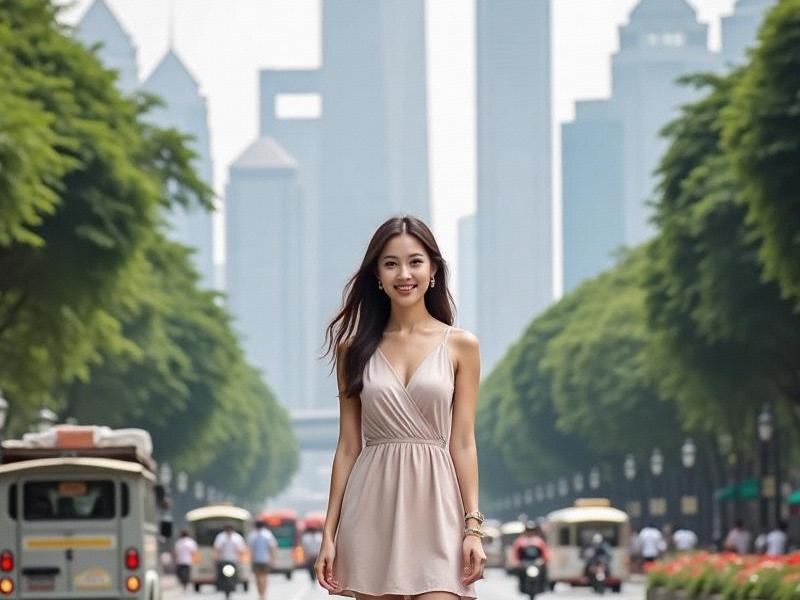This 2,800-word investigative feature explores the complex realities of being an educated, ambitious woman in Shanghai today - where centuries-old expectations collide with global opportunities in China's most international city.

The Shanghai Beauty Paradox: How China's Most Cosmopolitan Women Balance Tradition and Modernity
At precisely 7:15 AM on a Tuesday morning, three distinct sounds echo through Shanghai's Jing'an district: the metallic clang of breakfast vendors setting up shop, the distant hum of the Metro Line 2 train, and the synchronized click of Louboutin heels as 29-year-old private equity manager Vivian Wu power-walks toward her office in the Shanghai Tower. Her outfit—a modified qipao dress paired with a Theory blazer and Cartier tank watch—visually encapsulates what sociologists call "the Shanghai woman dichotomy," the delicate balancing act between Chinese tradition and Western modernity that defines female identity in this global city.
"Shanghai has always produced China's most fascinating female archetypes," explains Dr. Mei Lin, gender studies professor at Fudan University. "What's different now is that these women aren't just adapting to globalization—they're actively shaping it while redefining what it means to be a Chinese woman."
A Historical Perspective on Shanghai Femininity
Shanghai's reputation as a cradle of progressive femininity dates to the 1920s, when so-called "modern girls" (modeng xiaojie) scandalized society by smoking cigarettes, attending coeducational schools, and wearing revealing cheongsams. These pioneers established Shanghai as China's window to women's liberation—a legacy that continues today through key indicators:
- 41% of senior management positions in Shanghai are held by women (vs. 28% nationally)
爱上海论坛 - The city boasts China's highest average age for first marriage (30.4 for women)
- Shanghai women account for 53% of luxury purchases in mainland China
The New Shanghai Aesthetic
Along the tree-lined avenues of the former French Concession, a distinctive style emerges each morning as women commute to work. Unlike Beijing's power suits or Guangzhou's casual wear, the Shanghai look combines elements that would give traditional stylists pause: a silk scarf inherited from one's grandmother paired with Vetements jeans, or red-bottomed heels peeking out from beneath a traditional linen qipao.
"Western fashion designers come here for inspiration," says local designer Xiao Wen, whose hybrid designs have been featured in Vogue Italia. "Shanghai women treat clothing as cultural code-switching—they might wear a conservative dress to family dinner, then change into a bustier for cocktails at Speak Low."
The Marriage Pressure Cooker
上海花千坊419 Despite professional achievements, Shanghai's educated women face what sociologists term "the 3-2-1 squeeze": three generations of family expectations (grandparents and parents), two competing value systems (traditional and modern), and one biological clock. The city's infamous marriage market in People's Park sees parents advertising their daughters' credentials like corporate resumes—often listing master's degrees alongside cooking skills.
"I bought my own apartment at 28," says tech entrepreneur Rachel Zhang, 33. "My parents still introduce me to 'suitable boys' who expect me to quit my company. They don't understand—my startup is my first baby."
This tension fuels Shanghai's growing "single by choice" movement, with women-only co-living spaces and matchmaking events where the criteria emphasize emotional intelligence over financial assets.
Beauty Standards in Flux
Shanghai's beauty industry reflects these cultural contradictions. While porcelain skin remains prized, tanned athletic bodies now signal health and worldliness. Plastic surgery focuses on subtle "tweakments" rather than dramatic transformations—a nose refinement rather than full reconstruction.
上海龙凤阿拉后花园 "Shanghai beauty is about looking expensive, not artificial," explains Dr. Wang of Ruijin Hospital's dermatology department. "We're seeing demand for procedures that enhance rather than erase ethnic features."
A new counter-movement also grows. Local influencer Anny Fan's BareFaceShanghai campaign has drawn thousands of participants to embrace natural beauty, while feminist collectives protest unrealistic advertising standards.
Global Influence Rising
Shanghai's women increasingly shape international trends. When homegrown makeup artist Zi Ling developed her "Shanghai Glow" technique—using light-reflecting products to crteealuminous skin—it became a global phenomenon adopted by celebrities from Beyoncé to Blackpink's Lisa. Meanwhile, Shanghai-based fashion photographer Chen Man has redefined Chinese beauty standards through her unretouched editorials for Harper's Bazaar.
As twilight descends on the Bund, groups of well-dressed women gather in rooftop bars—some discussing blockchain investments, others debating international preschools. They represent Shanghai's fascinating present: thoroughly modern women still navigating ancient expectations in China's glittering global showcase. Their style, like their lives, blends East and West in ways that are redefining Chinese femininity for the 21st century.